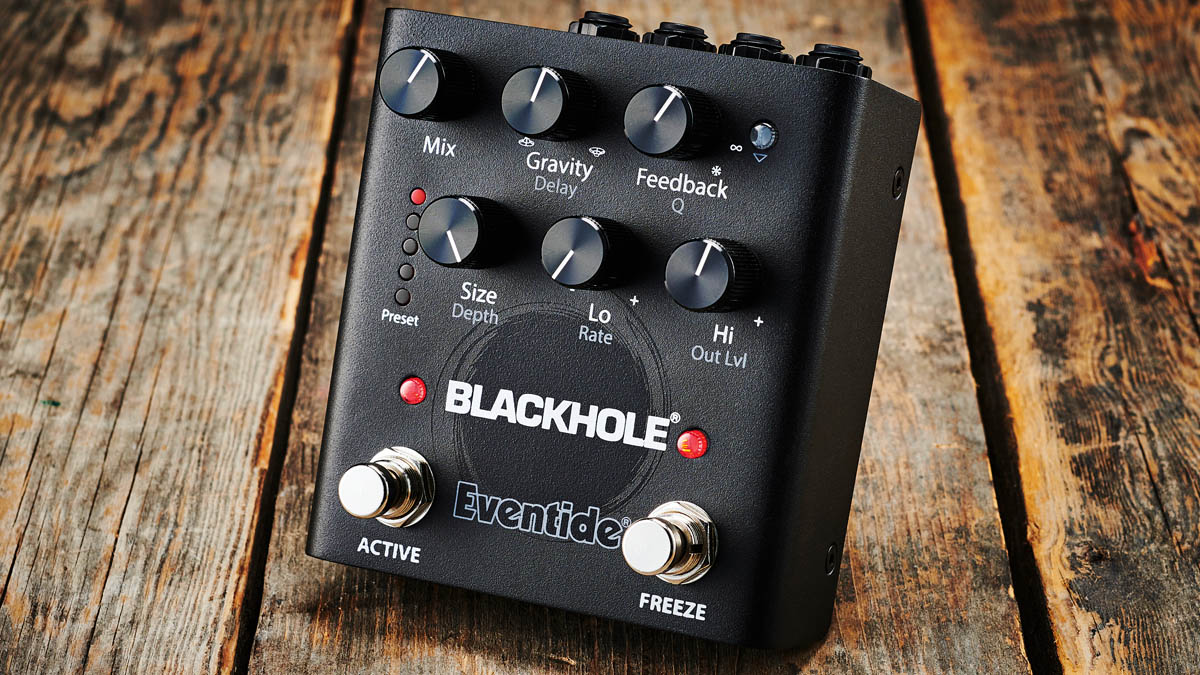Eventide cofounder Richard Factor is searching for extraterrestrial life – “I believe... Look at the size of the universe“
Watch Factor discuss interstellar signals, alien life and his amateur skywatching group on the Gear Club Podcast

Eventide cofounder Richard Factor has revealed that he is a member of an amateur skywatching group who are scanning the heavens for interstellar signals that would prove we are not alone in the universe.
Appearing on the Gear Club Podcast, Factor said he was inspired by NASA's Project Cyclops from the 70s, which stated that sending and receiving interstellar signals was feasible, and if there was any intelligent extraterrestrial life sending signals through outer space, we would be able to pick them up with the right equipment.
“I found this in the library at Stanford University, where they were just throwing away, or rather giving away these reports,“ said Factor. “And it's a pretty thick book authored primarily by a very famous astronomer named Frank Drake. It explained that it is actually technically feasible, not just possible, but feasible to transmit signals, interstellar light years, literally. And with a big enough antenna with enough power, with a good enough receiver, if somebody is sending us signals, we could hear them.
“And of course it takes hundreds of pages to explain this, but it's not whimsical. It's not hypothetical. At one point, this might have been dismissed as a laughing stock, but today it's taken seriously by both professional and amateur researchers around the world!”
Factor was so inspired by what he read he set up and is president of the SETI (Search for Extra-Terrestrial Intelligence) League, a grassroots group of skywatchers numbering about 1,500 members located in in five dozen countries across all seven continents.
Like Jodie Foster's Dr Ellie from Robert Zemeckis' 1997 sci-fi drama Contact, Factor and his colleagues at SETI listen out for signals sent from space. The technology might vary in sophistication, but the enthusiastic amateur could set up a listening post with a c-band satellite dish, radio receiver and a computer to analyse and record the signal. Of course, interpreting an alien signal might pose some difficulties too – though it would be helpful if any extraterrestrial beings would arrange their universal communiques in easily deciphered numerical code a la Contact.
Alternatively, signals could be sent from Earth, too, but given they might have to travel several lightyears, Factor believes the chances of receiving a reply within our lifetimes would seem slim.
Want all the hottest music and gear news, reviews, deals, features and more, direct to your inbox? Sign up here.

• Eventide Blackhole
As those who own a Space or H9 will tell you, the Blackhole reverb sound is not of this Earth. To have it in a standalone pedal, with knobs to turn plus programmable presets, will have today's seekers of soundscapes all starry-eyed.
Most of what SETI's skywatchers pick up is naturally occurring, cosmic noise and microwaves sent from astral phenomena, but the hope is that some signal reaches an antenna and exhibits signs that it was designed by an intelligent life form. While Factor acknowledges that the idea of flying saucers and space aliens is a stretch, life somewhere outside of our solars system is not.
I believe, pretty much everyone involved in the field believes, because how could you not? Look at the size of the universe. Look at what we’ve discovered already. I don't think there is any scientist who doesn’t pretty firmly believe
Richard Factor
“I believe, pretty much everyone involved in the field believes, because how could you not?“ said Factor. “Look at the size of the universe. Look at what we’ve discovered already. I don't think there is any scientist who doesn’t pretty firmly believe that [there is life] somewhere out there – and the question of course is if the universe teeming with life or is it one star per galaxy that maybe has a planet like Earth. Nobody knows. That’s what all the debate is about. That’s what all the work is about and that’s what SETI is all about trying to answer that question.”
Factor's search might go some way as to explaining some of the inspiration behind his company's most out-there effects pedals and audio processing algorithms – the Eventide Space and Blackhole reverb pedals make an ideal base camp for dialling in interstellar guitar tones.
As for the SETI League's success? Well, as Factor notes, they've picked up where NASA left off after their SETI funding was cut off in the 90s.
“I like to joke we are just as successful as Nasa was,“ he said. “They didn’t find anything and we haven’t found anything.”
Not yet, at least. You can keep up with the SETI League here, browse Eventide's range of effects pedals here, and subscribe to the Gear Club Podcast's YouTube channel here.
Jonathan Horsley has been writing about guitars and guitar culture since 2005, playing them since 1990, and regularly contributes to MusicRadar, Total Guitar and Guitar World. He uses Jazz III nylon picks, 10s during the week, 9s at the weekend, and shamefully still struggles with rhythm figure one of Van Halen’s Panama.
